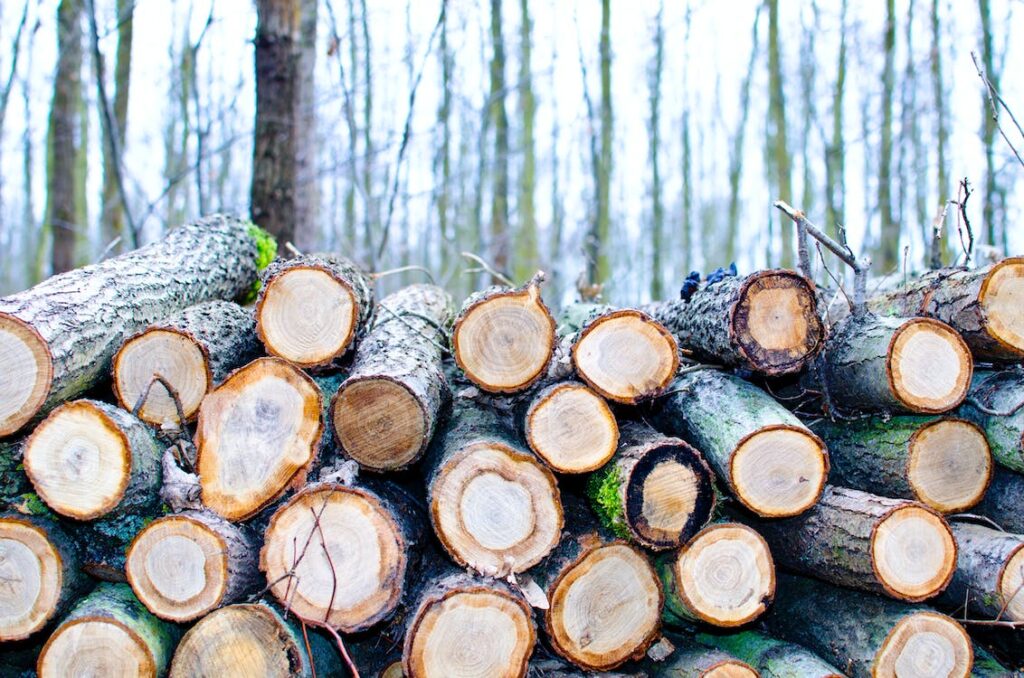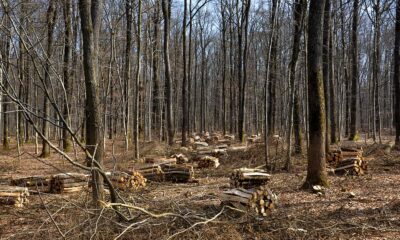Investing
What are the Best Options for Investing in Timber and Forestry
Timber, Trees, and Treasure: A guide to investing in forestry and lumber land.
Published
2 years agoon

Timber, Trees, and Treasure: A guide to investing in forestry and lumber land.
Would you like to learn more about a growing investment?
If you’re searching for a long-term, reliable investment with a dash of nature, investing in lumber and forestry may be the perfect choice.
But where do we begin? This article will explain the pros and cons of investing in the lumber sector and highlight some of your greatest possibilities.
So let’s explore the world of timber!
Understanding Timber Investments
Understanding what you’re investing in is crucial before discussing the best options for buying timber.
In contrast to, say, equities or bonds, timber is a unique investment opportunity since it is a renewable resource that grows back over time. But the solution is more complex than simply sowing a few trees and hoping for the best.
Direct ownership of forests and lumbering lands and indirect investments in mutual funds and exchange-traded funds are both examples of wood investments (ETFs).
Not all woods are created equal, which is a crucial point to remember. Climates, soil types, and laws that vary from place to region can have an impact on the development and sustainability of forests, as well as the returns on your investment.
Direct Investment in Timberland
Direct ownership of wood and lumber lands may be the best option for investors looking for a more hands-on experience.
The advantages of direct investment vs indirect investments include the potential for larger profits as well as the ability to have more influence over the management of your forests.
But take note: direct investment in forests necessitates a sizeable upfront expenditure as well as a certain level of competence in lumber management.
To make sure you make a sensible investment, if you’re interested in this choice, it’s crucial to conduct a study and talk with an experienced forestry consultant.

Indirect Investment in Timber
Direct investing in timber may not be suitable for individuals who lack the resources or knowledge to do so. Indirect investment in timber may be a preferable option.
This method is purchasing an ETF or mutual fund that specializes in the lumber sector. As a result of your money being spread over numerous businesses and assets, this can offer a more diversified and low-risk investment.
The downside? Compared to direct investment, indirect investment in the lumber industry often yields lesser profits. However, this can be a fine option for people seeking a more passive investment option.
The Best Options for Investing in Timber and Forestry
It’s time to choose the finest option for you now that you have a better understanding of the various alternatives for investing in timber and forestry.
Some of the best options for both direct and indirect investing are listed below:
Direct Investment options:
- Hancock Timber Resource Group
- Brookfield Renewable Partners
- Rayonier Inc.
Indirect Investment options:
- iShares Global Timber & Forestry ETF
- Invesco WilderHill Progressive Energy ETF
- SPDR
Wrapping it up: Investing in Timber, the Sustainable Choice
If you want long-term security and development potential, investing in lumber and forestry can be a wise and sustainable choice.
It’s crucial to conduct your research, engage with a professional consultant, and pick an option that meets your investing goals and risk tolerance whether you choose to go the direct or indirect way.
Keep in mind that investing in timber has more benefits than just financial gain; it also supports a renewable resource and works to preserve our planet’s forests for future generations.
Therefore, whether you’re an experienced investor or you’re just getting started, think about including a little amount of timber in your investing portfolio.
ALSO READ: What are the Risks and Rewards of Investing In Distressed Assets Such as Commercial Real Estate
This is Dean and he is a former banker with a passion for writing. He has Bachelor’s degree in Economics and an FCE English level certificate. Dean is an honest person looking for long-term partners and always giving clients more than they expect.

You may like
-
How to Find the Best Green Technology Start-Ups to Invest In
-
How to Maximize Returns by Investing in Private REITs
-
How to Invest in the Future of Transportation Such as Autonomous Cars and Drones
-
What are the Best Options for Investing in the Circular Economy
-
What are the Best Strategies for Investing in Infrastructure Debt
-
Squirrel vs. Moneybox: A Comparison of Savings and Investment Apps

Best Problem-Solving Strategies In Business

How to Start Affiliate Marketing Through Amazon

How to Plan A Wedding On A Budget

10 Reasons Why Budgeting Is Important













